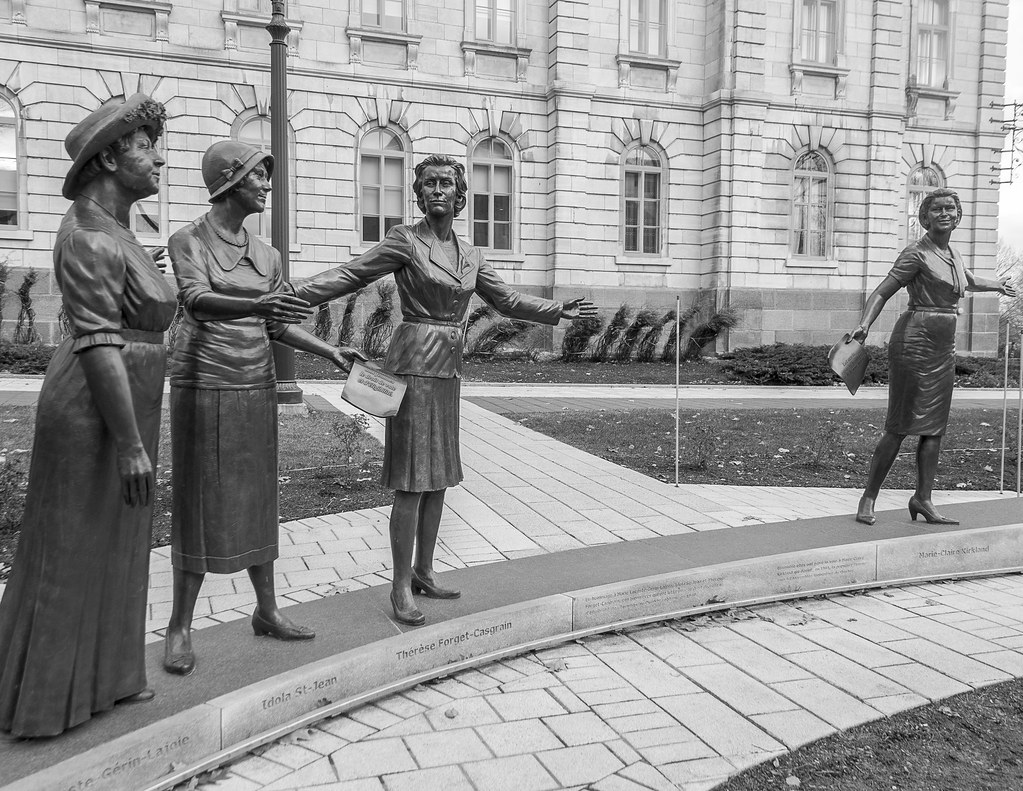Surely the duty of a representative democracy is to represent its people. For many living in a democratic country, it’s obvious that when the election is nearing, all a candidate needs is the citizenship and a certain age. They can then be elected by the people who see them as the best representatives of the voters’ values. Talk about women being underrepresented in politics is nothing new, so that’s why I’m bringing something new to the table: did you know there are countries where women aren’t represented at all? Why is this a thing? What can be done about it?
And yes, who’d be better to talk about women’s political representation around the world than me: a white European man. Well, firstly, if that made you angry, keep on reading. Secondly, I’ll reveal the second point at the end of this article, so again, keep on reading.
After women were granted the right to vote and run for office in municipal elections in Saudi-Arabia in 2015, there was only one country left on Earth where women have no political rights whatsoever. Can you guess which one it is? You probably got it wrong: it’s the Vatican – yup, a European country. Though technically speaking, there are no real elections inside the Vatican anyway: the local legislation is comprised of cardinals appointed by the pope. And when the new pope is elected by the cardinals, it’s primary for the whole Catholic Church and not for the Vatican. And no women can become cardinals. Women can, however, have Vatican citizenship although it’s often tied to that of their husbands.
But while the Vatican stands out in Europe as an exception, the sad reality is that women lacking political representation is a problem in one world region in particular. In Oceania, the statistics are alarming. There are three countries where women have the same political rights as men but still no woman has a seat in the current legislature. These countries are Vanuatu, Papua New Guinea and the Federated States of Micronesia. Other countries in the region don’t perform that well either: the Marshall Islands, Solomon Islands and Tuvalu all have only six per cent women legislators, whereas Kiribati and Tonga have seven. The best situation is in Samoa, where one in ten legislators is a woman. The two main reasons for this problem are the lack of economic equality between men and women and the attitude towards women in politics: being a politician is seen as a man’s job. I’d also like to point out that many Oceanian nations have gained their independence only recently. Until then, it was the Western colonizers who did the thinking for the native population, so the idea of the people being allowed to be masters of their own fate as a nation is a fairly new one in the region.
Papua New Guinea, whose parliament consists of 111 members, became a men-only club in 2017. In that year’s election, all three previous female MPs, which had been the record number since independence, were voted out even though a record number of women ran for office.
When Vanuatu went to the polls in March 2020, there were high hopes for the Leleon Vanua Democratic Party, which is led by a woman. The party was aiming to get as many women elected as possible but it withdrew from the election a month before election day because of fundraising problems. After the election, all 52 seats in the parliament were held by men, just as in previous elections in 2012 and 2016.
The Federated States of Micronesia has probably the most alarming situation. Not a single woman has ever been elected into the federal parliament. Unfortunately, further information on the country’s situation was hard to come by.
Luckily, the problem is being addressed locally already. Five months before the previously mentioned Vanuatu election, a campaign called Vot Woman was launched. Its ultimate aim is to see women have 50 per cent of the representation, with constitutional amendments if necessary. Papua New Guinea’s then Prime Minister, Peter O’Neill, called for a quota for women on the International Women’s Day in 2019. In March 2020, the proposal took a step forward when the Supreme Court ordered it to be rewritten. The newer versions calls for a 20 per cent female candidate quota for all political parties (instead of the original 5%). In both Vanuatu’s and Papua New Guinea’s cases the local politicians, who are men, have tried to alleviate the acute problem with gender quotas but also stepped up against the belittling, sometimes outright hostile, attitudes toward women in politics. And in both countries women have been extra active on the grassroots level and worked together with the men in power positions to get the message forward.
And that brings us back to the comment I made earlier about me, a white European man, bringing out problems in women’s political representation globally. The fact that women may have similar rights to men but still don’t get represented is an issue we all need to be aware of. And being aware of the problem is the very first step we all must take in order to address the problem. Saying that feminism is no longer needed since women can vote is just flat out wrong; things aren’t as good globally as they might appear to be for you. I can’t change the situation on my own – but I can talk about it and work towards fixing things, and you can do the same. That’s how we change the situation.


1 comment